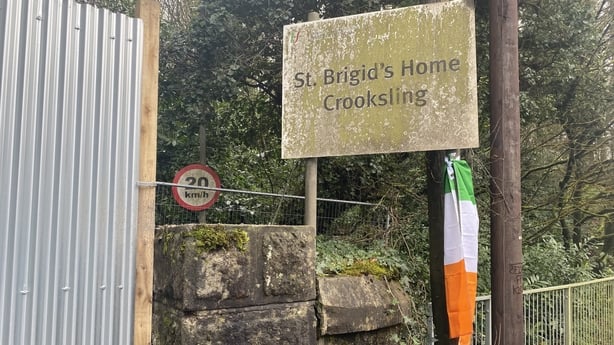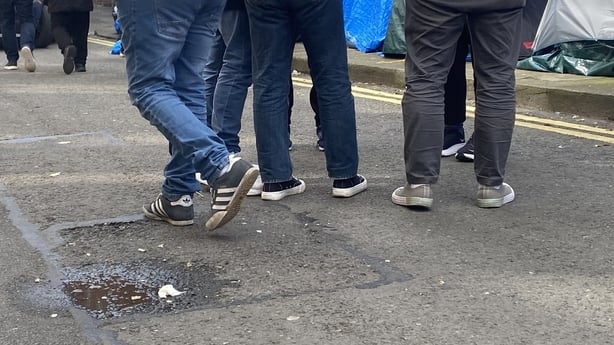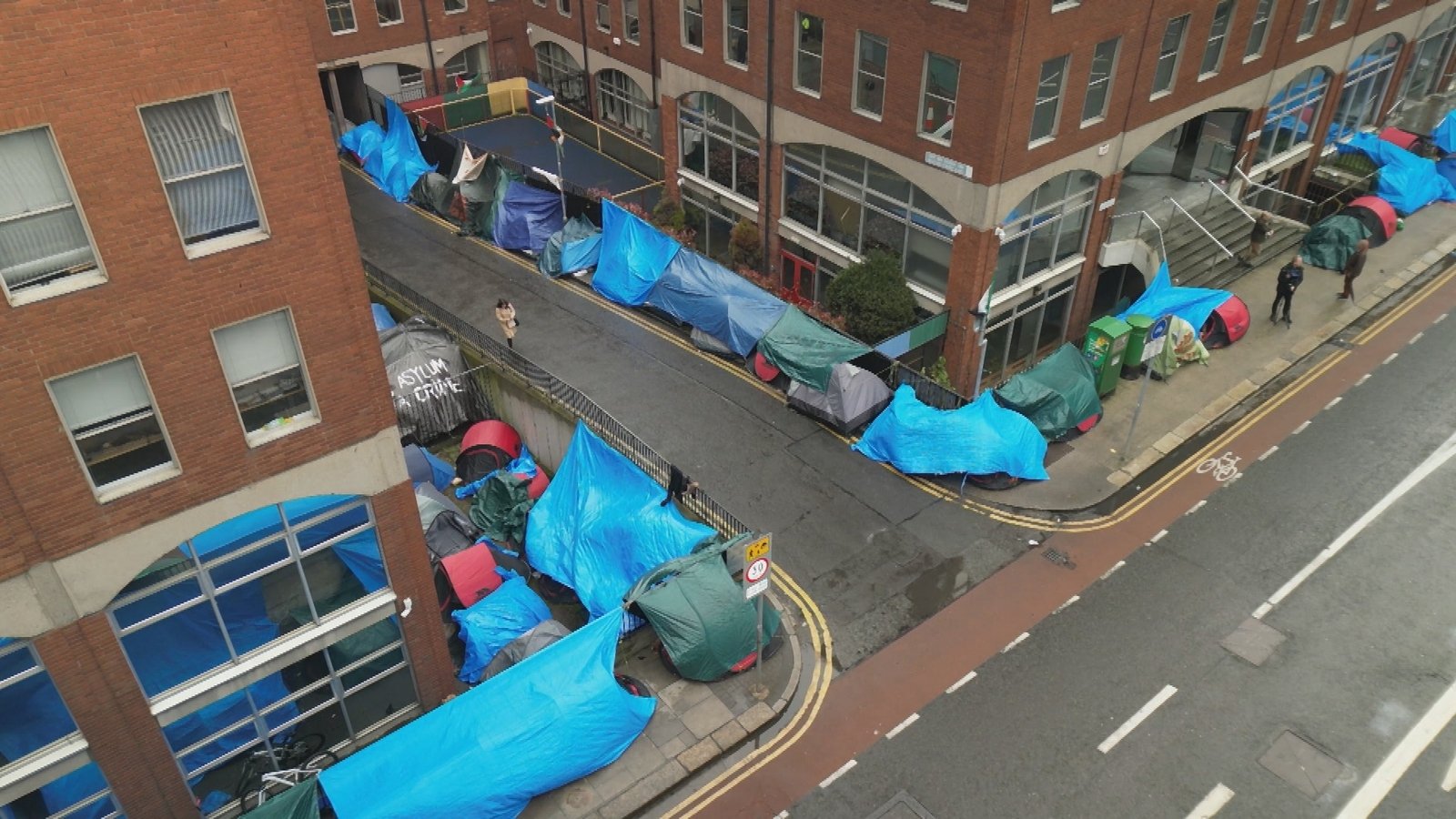The Government announced a strategy five weeks ago to address “the current accommodation shortfall” for International Protection (IP) applicants.
The announcement took place two weeks after tents were lifted from around the International Protection Office on Mount Street in Dublin city, in a chaotic operation on the eve of St Patrick’s Day.
By the time Minister for Integration Roderic O’Gorman announced his strategy, IP applicants without State accommodation were back on Mount Street.
The focus shifted to Ireland’s policy on migration and what the Department of Justice was doing about it.
News last week that 80% of asylum seekers who had recently arrived were coming across the border from Northern Ireland was met with astonishment.
However, Minister for Justice Helen McEntee stood by the number, despite NGOs claiming that they were not seeing evidence of such numbers on the ground.
When RTÉ News visited the International Protection Office on Mount Street over a week ago, many of the men said they had come to Dublin through the UK via Belfast.
They spoke about camps across Europe which they said were “the worst”.
Conditions on Mount Street were an improvement on what they had endured elsewhere, including their countries of origin.
The central location of the International Protection Office was practical in many respects.
Some used gyms in the surrounding area where they worked out, charged up their phones and showered.
As the number of tents grew in the area, there was a feeling of safety in numbers with the added assurance of CCTV on the building’s exterior.
The medical charity Safetynet was also there checking on the men.
Within days, a coordinated effort between the Department of Integration, the Department of Justice, gardaí, Dublin City Council, the Office of Public Works and the Health Service Executive resulted in the men being moved, their tents lifted, and barricades erected.
While the majority were bussed from the city centre to Crooksling and Citywest, some were left without shelter.
In December last year, the Government announced it would no longer be able to accommodate single male international protection applicants.
By January, there were 3,063 international protection applications.
Of those, 260 were being dealt with under accelerated procedures.
Therefore, they received interview notifications carried out at the International Protection Office by hand on the day that they applied for asylum.

In response to a parliamentary question from the Independent TD Catherine Connolly, Ms McEntee confirmed that by the end of February, 75 of the men in the accelerated process had not received an accommodation offer from IPAS.
Which meant the majority went from their tents on Mount Street into their interviews.
For those who do not fall under the category of accelerated procedures, they receive their interview notification by letter.
These are issued by post or in cases where an address has not been provided, contact is via email, phone or through a legal representative to inform them of their interview date.
They also have the choice to pick up their letter of invitation in person.
This may prove more difficult now that the men are no longer based at Mount Street, however, conditions were untenable for residents and businesses in the area.
There have been countless calls for the nearby disused Baggot Street Hospital to be refurbished and used for accommodation, but there does not appear to be movement from the Government in that regard.
One source said it would cost hundreds of millions of euro to get it functioning, but it is difficult to comprehend its idleness given its proximity to Dublin city and the IPO.
In the meantime, staff at the International Protection Office are making efforts to get through applications at a faster pace.
This week, the Cabinet sub-committee on migration focused on enforcement and speeding up the asylum processing system.
It heard there were 513 deportation orders issued up to the end of April and that of these, 186 were removed from the State, including 136 voluntary repatriations.
It is understood that applicants who are in State accommodation remain there while the deportation process is under way, which can take time.
In the meantime, the Department of Justice is reviewing the “liability of carriers” in the process including increasing fines to airlines.

A total of 5,774 people who arrived in Ireland were not given permission to enter the State between April 2023 and March 2024.
In 2018, the number of people refused entry was 4,776.
The Movement of Asylum Seekers in Ireland (MASI) has expressed concern over those from “active conflict zones” who have been refused entry over the past 11 months.
A parliamentary reply to People Before Profit TD Bríd Smith showed that the highest number of people refused entry were from Somalia (541), followed by Georgia (473), China (444), Albania (452) and Syria (429).
MASI has said no one should be sent back to places like Somalia, Afghanistan (216), Sudan (150) and Palestine (62).
Those seeking asylum continue to arrive in Ireland.
There are over 1,600 male asylum seekers without an offer of State accommodation.
Around 17 tents were pitched in Ballsbridge on Thursday night with the permission of St Mary’s Catholic Church.
Archbishop of Dublin Dermot Farrell described the plight of homeless applicants for International Protection as “heart-rendering”.
He said their needs were such that only the public authorities could respond effectively and that the authorities deserved “full support” in putting appropriate measures in place.
“While parish communities have been very supportive both of refugees from Ukraine and applicants for International Protection, the scope for providing accommodation is severely limited given the absence of necessary facilities and the impact on local residents and adjoining facilities such as schools, apart altogether from the impact on the delivery of parish services,” he said.

